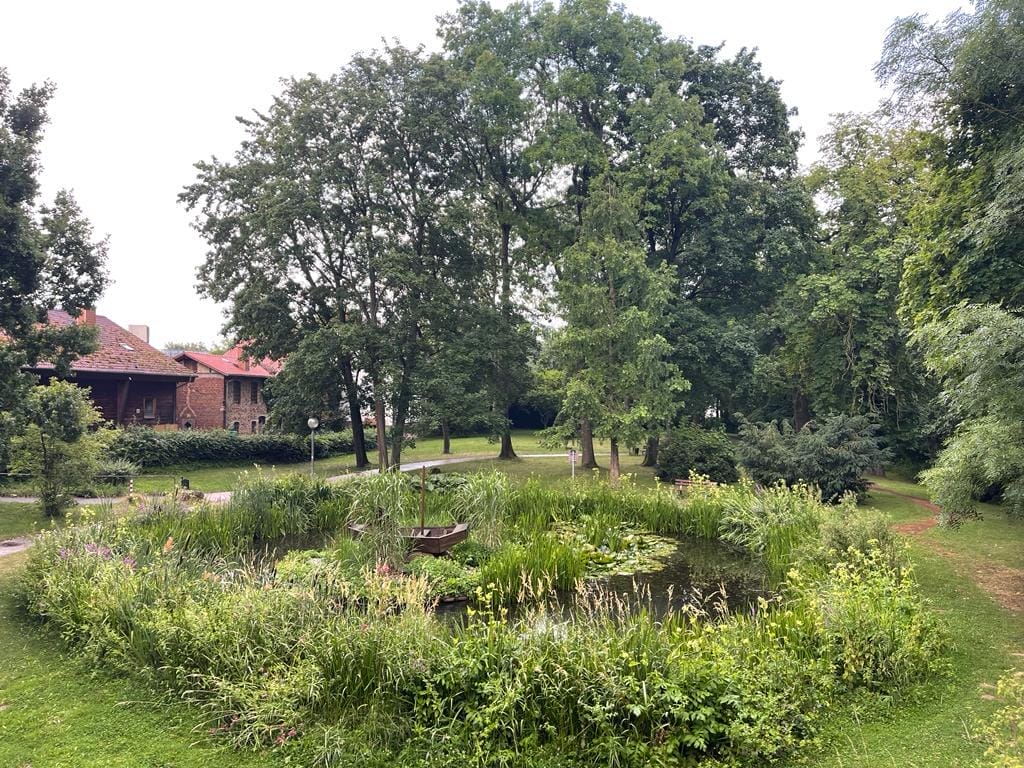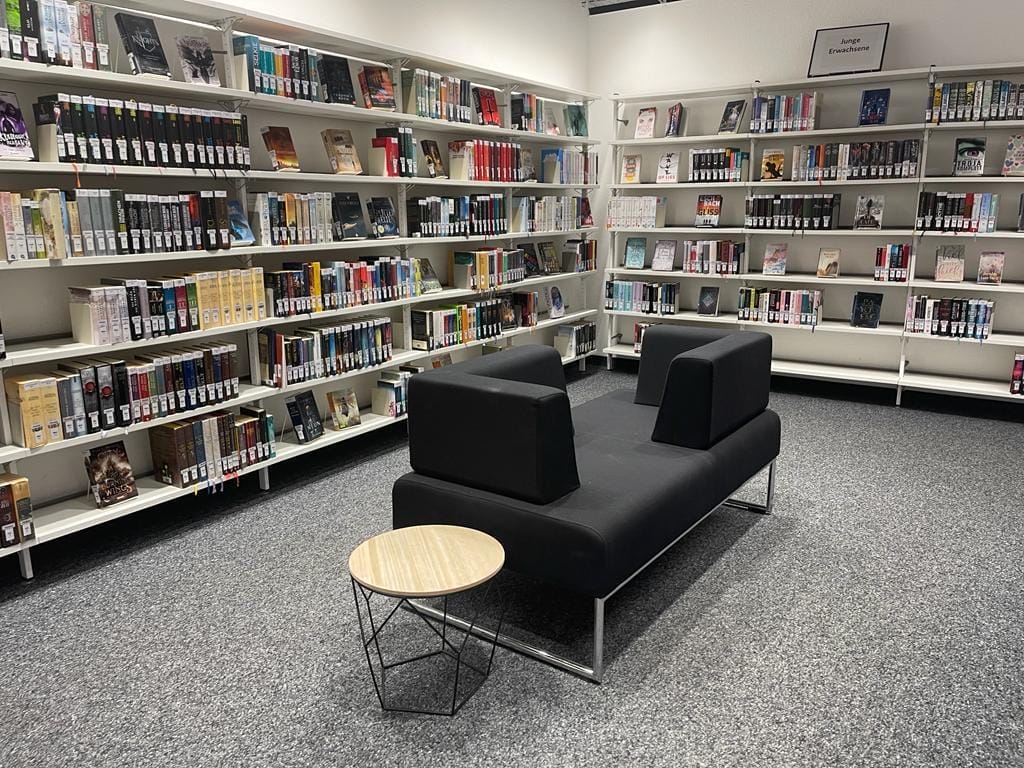Reflection of a life: How Jamila left Afghanistan in search for safety
Jamila faced all the hardships in Afghanistan since the Soviet occupation. Being a mother herself, she decided to start a new life in Germany.
Growing up in conflict
Jamila was just seven years old when her father died during the Soviet occupation of Afghanistan. Left with seven young children to care for, her mother faced an incredibly daunting challenge.
Tragedy struck when the family’s home was burnt down to ashes due to the ravages of war, forcing them to leave their home in Kapisa city behind and seek refuge at her grandmother’s home in a village about 30 km away. Despite the distance and the risks, she and her family braved the hardship in search of safety. During the war, it was impossible to focus on education – it seemed like a distant dream as everyone’s main concern was simply to survive. Many people lost their homes, belongings and possessions. Many buildings, including schools, were damaged, making it impossible for any student to attend school.
With tears in her eyes, a deep sense of loss in her gaze and a heavy heart, Jamila’s trembling voice reveals the deep emotions she has experienced: “Life can be so unfair. While children of our age in the other parts of the world had the chance to go to school, we were confined to our homes, unable to explore the world beyond our doorstep.”
Her voice shakes as she continues. “In addition to the horrors of the ongoing war, my mother lived in constant fear for her daughters, afraid of any harm that might come our way,” says Jamila. As if that wasn’t enough, the economic situation was getting worse by the day. They lost everything they thought was valuable.
Dreams left unfulfilled
In her childhood, Jamila was denied the opportunity to attend school because of the war between the Mujaheddin and the Soviet military. Instead, she went to the mosque – the only place girls were allowed to go to study. It was limited to the Quran and basic religious studies. Her only dream at the time was to become a religious teacher, the only career option available for her,and educate other girls and women. But it remained a dream, a distant daydream even, she says.
With tears in her eyes, Jamila reflects on those war-torn days. She recalls how it was far from safe for girls to venture outside, even though their village wasn’t directly affected by the conflict. There were disturbing reports of attacks on girls’ schools and abductions, among other harrowing incidents. Her mother decided not to send the kids to mosque anymore.
A mix of reluctance and family duty
Under the pressure of her family, Jamila entered into an arranged marriage when she was a young girl. It was and still is a common practice in Afghanistan: The groom’s family sends a proposal to the girl’s family, and this is commonly referred to as a suitor. In this practice, personal preferences and choice often take a back seat. Refusing a suitor was considered immoral, raising suspicion that the girl might have an eye for someone else or even worse: being engaged in an affair. Although Jamila wasn’t entirely willing to enter this union, she still accepted her family’s decision and prepared herself for the wedding, a decision filled with a mixture of reluctance and family duty.
Nevertheless, Jamila was happy in her married life. She explains: “Despite being my husband’s second wife, he’s a kind-hearted man who treats me with respect.” She states: “We lived in Kabul and had a prosperous life, owned a house and property, and my children attended school. I was satisfied with everything in my life.”
Her husband, who was a military official in the government during Dr. Najibullah’s era, had foreseen a worsening situation in Kabul in the coming years. She stats: “He was an experienced ex-military official; what he had predicted did indeed come to pass, as conditions deteriorated day by day. Security got worse and people lived in constant fear, even within the confines of their own homes.”
A new beginning
The growing problems in her home country, particularly the increasing number of assassination and kidnapping of children from wealthy families and the lack of safety and security in the Kabul and cities in general forced them to make a big decision – to leave their homeland. Poverty was not the reason behind their decision; they lived a comfortable and happy life, but their wealth had become a source of insecurity. They received threats death threats for their children and were scared by many incidents of kids from wealthier families being kidnapped.
A mixture of nervousness and fear led them to start their journey to Turkey in 2015. They had to sell their family home to pay for this new beginning. However, leaving behind loved ones and their homeland, all whilst travelling with two young children, made life particularly challenging for Jamila. They crossed the Aegean Sea from Turkey to Greece by boat, then continued through other countries by train. They received some of their basic needs and necessities in refugee camps, and after five days of travelling, they finally made it to Germany.

Jamila explains: “Unlike many other refugees who faced countless challenges crossing borders, our journey to Germany was relatively smooth.” They were lucky enough to have some financial resources, allowing them to pay human traffickers to ensure a safe and expedited passage. She continues: “Although we reached Germany sooner, it was not an easy journey. It felt like a nightmare and when I arrived, I felt blessed that those dark days had passed. When we crossed the border into Germany and breathed its air, I hugged my children tightly and kissed them, thanking God that nothing, not even a scratch, had happened to them. “
Hope for the future
So far, Jamila has faced numerous challenges, and many aspirations remain close to her heart. However, she is currently making an effort to learn the German language, having already passed A1 level, and hopes to stand on her own two feet. She says: “Education knows no age; once I’ve mastered the language, I want to pursue my studies. Even though the government does not provide support for me due to age criteria, I remain hopeful that a path will open up for me.”
She still desires to provide the best life for her family and strives for her children’s education. If she had stayed in Afghanistan, her children, like many other adolescents, would have been deprived of education. “The reason for leaving Afghanistan wasn’t economic difficulties; it was solely the safety of my family that was at risk,” she says, “Here, I plan to obtain my driving license and work as a taxi driver like my husband to support him with the house expenses,” she says and mentions a decent loan and flexible working hours: “During free time, I take walks with my children or visit the library.” She adds: “My sole wish is a better future for my children.”
Post published on March 3, 2024
Last edited on March 3, 2024
[mc4wp_form id=239488]




Leave a Reply
You must be logged in to post a comment.